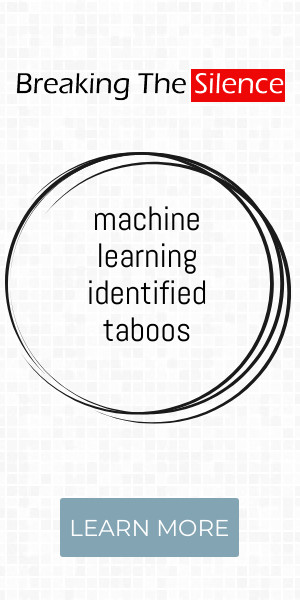Menses is generally perceived “unclean” and menstrual taboos are well described across many cultures.
Although Western cultures have evolved from the menstrual discriminations and taboos, sexual activity during menstruation is still perceived to be risky and dangerous for both parties.
Viruses like Hepatitis B and HIV can spread through menstrual products, hence the use of condoms is crucial for the reduction of such infection, in fact with or without menstruation.
Although queer Bollywood still lacks the support of the mainstream audience, it is constantly striving to normalise and question the taboos around the Indian LGBTQ scene.
My Brother Nikhil raises awareness about AIDS and the importance of family support for members of the LGBTQ community.
A film by Shonali Bhosle, Margarita with a straw touches issues that are still a taboo.
The movie is set in an age when Aids and homosexuality were unspoken of.
It revolves around the life of a swimmer who is diagnosed with AIDS and is kicked off from his team and family.
“My Brother Nikhil goes where few mainstream movies have gone before: AIDS and homosexuality; a loving relationship between two men”- Anupama Chopra for India Today.
Vaccine-preventable diseases such as tuberculosis are also significant health problems, alongside malaria, diarrheal and waterborne diseases, and HIV.

In turn, political, social, and cultural issues such as corruption, misallocation of resources, and the lack of appropriate and adaptable health education and messaging have resulted in an HIV/AIDS epidemic of a scale and scope unprecedented in the region.
Yet, for the 640,000 over people living with HIV in Indonesia, social acceptance and blending in still seems like a distant reality.
The issues with Indonesian health care are especially drastic when it comes to taboo-labeled diseases like AIDS.
HIV most commonly spreads through unprotected sex with carriers of the virus and through shared needle/syringe use.
However, most children get HIV from their mothers during pregnancy, at birth or through breastfeeding.
An interconnected chain of social, political, cultural and economic factors reduces the quality of life of people living with HIV/AIDS including in Indonesia – particularly through persistent stigmatizing of and discrimination against PLHIV – serophobia.
Cultural taboos and religious beliefs inhibit communication about sex, label sexual activity as deviant, and tie together a sense of shame and secrecy about the topic.
Hence, the method of HIV transmission immediately infuses the disease with negative connotations, preventing individuals from accessing accurate information on preventive behavior, discouraging medical testing and seeking health assistance, delaying treatment and complicating therapy adherence.
The stigma attached to HIV/AIDS most negatively impacts children – a demographic that had no control over their HIV status or a role in contracting the retrovirus – eliciting a dangerous environment driven by irrational negativity and fear toward them.
Just a year ago, in February 2019, a Surakarta elementary school expelled 14 HIV-positive children following backlash from parents.
After hearing about students’ HIV status, parents threatened to pull their children from the school if the administration did not expel the HIV-positive students.
In North Sumatra, a ban on HIV-positive orphans and children from school was also reported.
Exacerbated by the combined impact of poverty, PLHIV also face difficulties paying bills, finding jobs, facing domestic violence and abuse or even buying houses.
As HIV-related stigma continues to impend HIV identification, prevention and treatment, it is high time for youth to take part in changing our social landscape a whole 180 degrees.
Through spreading the word on safe sex, sex education, wellness and promoting preventive behaviors like condom use, HIV testing, engagement in HIV care, and quality of care, we can begin jumpstarting the much-needed national conversation on stigmatized illnesses.
Currently, international school students from around Jakarta are making efforts to challenge the irrational fear people have toward HIV/AIDS.
Last Sunday, Kampoeng Sehat volunteers from Jakarta Intercultural School, British School Jakarta and Binus School Simprug worked closely with HIV-positive children for one day by helping them boost their confidence and self-esteem in preparing a fashion show.
Each volunteer teamed up with an HIV-positive child from the organization, and together they learned how to show off their model faces and strike their best poses.
Hence, we began collaborating with Lentera Anak Pelangi – a community-based organization that aims to reduce the burden and improve the quality of life for children born to parents with HIV/AIDS and drug users in greater Jakarta.
The program has four main goals: reducing the morbidity and mortality rates of HIV-positive children through health and nutritional intervention, preventing children from being marginalized because of their HIV status, developing children’s psychosocial and life skills through education as well as building a multidisciplinary intervention plan that can be mobilized by the government.
As the world’s largest Muslim democracy, sex is still widely considered taboo.
Indonesia‘s limited view of sex education and HIV/AIDS ensues a “moral panic” that has been cited to contribute to the spread of HIV, as potential carriers avoid being identified, let alone tested.
Hence, this treacherous take on HIV/AIDS requires a grassroots behavioral change from all members of the community.
Besides focusing on children and parents living with HIV/AIDS, intervention must also target schools, religious and community leaders and the political system.
Only then will all levels of society understand HIV/AIDS transmission and treatment, as well as join efforts to reduce and prevent discrimination of PLHIV.
“I think the needle exchange, while it is well-intentioned, I think it’s a bad mistake for the county and for Aberdeen because when I was going to high school in the ’90s, it was very taboo to use intravenous drugs, to inject drugs.
It was a very taboo subject. … Now kids in the high school and even junior high, it was shown to be safe and clean now.
So instead of being taboo, it was socially acceptable.”
Ross stressed that the purpose of providing the syringes — which are provided by the federal government — is to reduce the spread of diseases, such as HIV and hepatitis C, associated with intravenous drug use.
Holden shared studies that back up her assertions that syringe exchange programs reduce the spread of HIV and help increase enrollment in drug treatment while not promoting substance abuse.
In India, from the late 1980’s growing awareness about the AIDS epidemic made it increasingly legitimate to talk of sex outside the realm of law, demography and medicine and not only as violence against women or in terms of population control.
But however, AIDS awareness helped to produce a critical understanding in the public sphere.
In India, while talking about sex education, much emphasis is given on teenage pregnancy and HIV/AIDS infection.
The government of India initiated ‘Adolescent Education Program’ in 2007 in collaboration with National AIDS Control Organization and United Nations Children’s Fund .
The term ‘sex’ and ‘sexuality’ carries a lot of taboo within the premise of the school especially in presence of authority.
Bound by conservative values and cultural taboos, sex education remains a sensitive topic in Malaysia and many people are kept in the dark about matters like contraception, sexually transmitted diseases , and consent.
Ilmu Seks discusses a range of conventionally taboo topics with their 15,000 plus followers.
“The doctor did a physical examination on my private parts in front of many nurses and asked me to go to a private clinic to do a HIV test, all based on assumptions she made without properly taking an accurate history of my health.
Malaysian AIDS Council president Bakhtiar Talhah also said in December last year that sex education was needed now more than ever to prevent the spread of STDs like HIV.KUALA LUMPUR – An Indonesian YouTube star, whose videos about being gay and living with HIV have generated millions of views, is hoping his popular channel will help fight moves by lawmakers to clamp down on the country’s beleaguered LGBT+ community.
In recent years, there has been a rise in anti-LGBT+ sentiment in the Southeast Asian nation, where homosexuality is not a crime but remains taboo.
In 2018, he defied public hostility to became one of the first gay Indonesians to campaign on LGBT+ and HIV issues using YouTube – two weeks after he was diagnosed with the virus.
The LGBT+ community have long been largely tolerated in Indonesia, but they have faced a growing backlash since a wave of anti-gay rhetoric in 2016, with a rise in laws and raids targeting the community.
He warned widespread anti-gay biases could threaten Indonesia’s goal to end an AIDS epidemic by 2030, recalling his own experience when he sought testing at a government clinic.
Research from HIV, Ebola, Hansen’s Disease, and other infectious disease epidemics shows that stigma undermines efforts at testing and treating disease.
When NBA star Magic Johnson announced he was HIV positive, HIV testing rates increased dramatically across the nation.
In this regard, social media posts from celebrities who have the disease are also likely to help lift the taboo.
That virus, HIV, carried its own set of societal innovations.
After decades of increasingly liberal attitudes toward sex, safety started entering public health conversations that had once been taboo.
“Before HIV, maybe the worst you could get was herpes or gonorrhea where you could take some antibiotics,” Loomis said.
People point to HIV in 1980, 1981 as the moment that ended.”
HIV and AIDS also led a revolution in medical privacy, after some gay men were outed by their doctors after testing positive for the virus.
Examples of STIs include chlamydia, gonorrhea, genital herpes, human papillomavirus , syphilis and HIV.
Though she built a career around sexual education, serving as Team Leader for HIV prevention at UNESCO, it wasn’t until she became a mother herself eight years ago that she says she suddenly realized just how systemically taboo even the most natural women’s issues are across all cultures, in all corners of the world.
The mainstream health and wellness industry is, to quote the New York Times, “a largely white, privileged enterprise catering to largely white, privileged and able-bodied women.” Do the taboos that Elvie is striving to break afflict women in this circle? Certainly.
Monday marked 19 years since the death of child AIDS activist Nkosi Johnson.
In 1990 she became a founding member of a home for HIV-infected men in Houghton.
“Gay, white men with HIV was about as taboo as it got for the suburbs,” she says, her voice husky from years of losing the battle to quit smoking.
It was a call from a doctor on the home’s board asking if they would take in a child with HIV.
He was later adopted by Johnson after his HIV positive mother, Daphne Nkosi, could no longer care for him and when the care home closed.
He would come to be known as Nkosi Johnson – a global icon and face of children on the continent affected by HIV/AIDS.
All because of her decision to adopt Nkosi and speak out for others affected by HIV/AIDS.
It was Nkosi’s questioning of the world, and his acute awareness that there were other children like him who were suffering, that spurred Johnson to set up a home for HIV-infected mothers and their children.
These were, however, the years of AIDS denialism, lingering homophobia and the not yet won rights for treatment and support for HIV-infected people, pregnant women in particular.
Nkosi took to the media like a duck to water and was invited to address the World AIDS Conference in Durban in 2000.
Meanwhile, Johnson has never become complacent about HIV/AIDS.
But there’s still work to be done – another generation of children with HIV-AIDS who need help.
A total of 1,222 new HIV or Aids cases were reported in South Korea in 2019, up 1.3 percent from the previous year for the largest annual total ever recorded, the Korea Centers for Disease Control reported.
Homosexuality remains something of a taboo subject in South Korean society and is illegal in the armed forces, meaning that the latest statistics may not accurately reflect the true scale of the problem if individuals have yet to come forward because they fear discrimination.
Eun Hye-shim, director of the KCDC’s Division of TB and HIV/Aids control, pointed out that annual new cases of HIV have been holding steady at around the 1,000 figure in recent years, which is “far lower than the average annual incidence of OECD countries”.
“We are planning to carry out further research to identify effective intervention to curve levels of newly diagnosed HIV cases.”
“In Korean society, which has a high aversion to Aids, the biggest problem is the stigma and disgust towards ‘homosexual diseases’ rather than the infection rate itself”, he said.
The opening show, “Implicit Tensions: Mapplethorpe Now”, offers a survey of the artist’s brief yet varied career, with prints made between 1970 and 1988, the year before he died from AIDS-related complications, aged 42.
Mapplethorpe consistently presented taboo subjects in visually stunning ways.
Particularly when the AIDS crisis got underway in the 1980s, Mapplethorpe’s unrepentant embrace of the gay male gaze was nothing short of radical.
We Indians gave the world the Kamasutra but talking about sex is taboo.
We may have a large number of HIV cases but asking for a condom at a chemist is a nightmare.
Discussions about sex and HIV in Indonesia remain highly taboo, while the limited information that exists is often unclear, not easy to digest or contradictory.
In an attempt to improve the quality of information provided to young people, the UNAIDS Country Office in Indonesia has developed Tanya Marlo, or Ask Marlo, a chatbot powered by artificial intelligence and designed to be the go-to source for all things HIV-related.
Marlo is a cute character who provides basic information about HIV through user-friendly content such as infographics, quizzes and FAQs .
In just a few taps, Ask Marlo users can also book HIV testing appointments at health centres across Jakarta, Indonesia.
The counsellors receive many questions on how to access HIV services and HIV treatment.
“Many people, particularly young people, in Jakarta still do not know basic information about HIV.
I am surprised that a chatbot can be used to teach about things as complex as HIV.”
“With Ask Marlo, we don’t have to be ashamed to ask anything related to HIV.”
From the Nepalese woman in a rural area who dies from complications of menstrual shaming and the cultural stigma around this — to the poverty-stricken teenager in rural North Carolina who cannot afford menstrual products — the menstrual equity movement is a political and social movement to mitigate the problems that half the population may face, Whether it is lack of access due to poverty or social conditions or the actual taboo of menstruating women being unclean and impure in certain cultures, many women and girls have medical and social complications that develop.
Women who are infected with HIV have the hardest time with the stigma and are often isolated as a result.
Many of them suffered from menstrual pain, or dysmenorrhea, and felt it was normal and did not discuss with anyone because of the associated taboo.
Whether they are incarcerated, impoverished or those that are members of a country club but still have associated taboos related to discussing menstrual hygiene, women should be able to endure a natural process like menstruation without worrying about access to products, unfair taxes and associated health and social consequences.
Just about any talk of women?s ?time of the month? has been taboo throughout most of history.
Recognition of the AIDS epidemic came just on the heels of TSS, which led to questions about legality regarding what patient information was private.
He has developed several health initiatives that have positively impacted individuals with HIV seeking care, and he spearheaded the development of Ryan White and SAMHSA supportive programs for a small national nonprofit.
He currently serves as the program coordinator for the Georgia AIDS Education Training Center at Morehouse School of Medicine.
The organization provided free HIV screenings and later expanded to provide support services related to HIV care.
Three main challenges in eradicating HIV are fragmented health care systems and HIV prevention efforts, unfair resource access for rural areas, and stigma.
Fragmented HIV prevention efforts make it increasingly difficult to initiate comprehensive care for newly HIV-positive individuals.
Is there still a stigma in the Black community when it comes to HIV?
There is still a glaring stigma associated with HIV in the Black community.
Dialogue around sex is still taboo in our culture, so it is no surprise that there has been no traction on improving the conversation around HIV.
I believe stigma can be addressed by educating the masses on the realities of HIV and how it truly manifests and impacts the body.
The HIV conversation appears to have lost momentum.
IN a shocking development, 18 new HIV-positive cases were detected by the Sindh AIDS Control Programme during examinations in Larkana district.
Larkana is also said to be one of the districts in Sindh with the highest number of HIV/AIDS patients.
In total, Sindh had an estimated 60,000 HIV-positive patients by August 2018, according to a report submitted by the Ministry of National Health Services to a three-member bench of the Supreme Court.
That was the same month that Chief Minister Syed Murad Ali Shah prematurely declared that the Sindh government had successfully controlled the spread of HIV/AIDS through the use of effective awareness drives.
However, by November 2018, a total of 889 new HIV-positive cases had been reported in the province in a mere six-month time frame.
Similarly, the number of HIV-infected patients had risen to over 5,000 by the end of last year in Balochistan.
According to the NHS report, there are an estimated 150,000 HIV-positive patients in Pakistan: 75,000 in Punjab; 15,000 in Khyber Pakhtunkhwa and Balochistan.
In Sargodha alone, which has been in the news for several outbreaks of HIV/AIDS, 869 people were diagnosed with the condition in the past 10 years.
Health and health-related issues are given low priority in the national agenda, but the federal and provincial governments must treat the HIV outbreak as a health emergency, and act fast against medical malpractices suspected behind the rise in cases of HIV/AIDS.
Without proper attention and intervention immediately, the HIV emergence can develop into full-blown cases of AIDS, one of the most miserable conditions a person can endure.
The reasons for the high figures of HIV/AIDS in this country include unlicensed medical practitioners, or quacks, and large-scale medical malpractice via used syringes and unsterilised medical tools.
Besides, unsafe blood transfusions, contaminated razor blades used by street barbers, a migrant labour force open to commercial sex, along with lack of awareness of safe sexual practices, and taboos around sexual health and practices that make it difficult for those suffering from HIV/AIDS to seek help or even find a support group are also responsible for the rise of HIV/AIDS.
Published in Dawn, April 24th, 2019Let’s talk about sex – taking sex ed to rural villages where the topic is often taboo Many parents in rural Limpopo don’t feel free to talk to their children about sexual issues, which increases the risk of sexually transmitted diseases and teenage pregnancies.
Stop the Spot has more than 200 members and provides a platform for experts to chat to young people about how to protect themselves from diseases such as HIV and cervical cancer and how to keep their health excellent at all times.
Image credit: iStockIn Haiti, about 150,000 people out of a population of 11 million are believed to be living with the HIV virus.
Despite many public health interventions in the region, people in Haiti that are infected with HIV are vulnerable to stigmatisation, particularly sexual minorities.
A difficult commitment in the fight against HIV
The poorest country in the Western hemisphere, Haiti has the highest number of people living with HIV in the Caribbean, the second most affected region in the world outside of Africa in terms of prevalence.
Despite political unrest, socio-economic difficulties and ongoing natural disasters, Haiti remains committed to the fight against the HIV epidemic.
The prevention and treatment strategies implemented by the government in collaboration with non-governmental organisations and international donors have contributed to reducing the national HIV prevalence from 6.2% in 1993 to 2.2% in 2012 and at 1.9% in 2017.
According to a survey conducted in Haiti and published by the United Nations Program for HIV, the prevalence of this infection among MSM is 18.2%.
This is the case, for example, of people infected with HIV, men who have sex with men and alcoholics.
The the second case, people with HIV face considerable stigma because many believe that they could have controlled the behaviours at the root of the infection.
Sexual behaviour is framed by strict social taboos against homosexuality, which leads MSM to conceal their sexual activities.
Many MSM therefore develop heterosexual relationships, a behaviour that also serves as a bridge for HIV transmission from the MSM community to the general population.
The homosexual population is at greater risk of HIV infection because of certain personal and social factors including multiple partners and short-term relationships, low condom use, and misconceptions about anal sex.
Homosexuality is considered taboo by Haitians who are largely influenced by Christianity.
Weaknesses in government and legal structures – including the penal system – also contribute to stigmatise and discriminate against people living with HIV.
A proposal in December 2011 of a law to the Haitian Parliament to better protect people living with HIV hasn’t been considered so far.
Anxiety about their HIV status and its social consequences are cited by people as major deterrents to testing.
Confidentiality is also a concern because some health facilities separate patients presenting for HIV testing from those seeking other health services so it is made obvious who is attending HIV services.
Although many efforts are being made to improve the management of MSM infected with HIV in Haiti, societal situations persist at different levels that prevent the identification and full implementation of effective strategies to reduce stigma on a large scale.
But without the political will and resources to support and intensify activities in healthcare facilities and communities, inclusion, respect and tolerance, which are essential to HIV eradication, will remain purely theoretical.
The text of this article was generated by the Breaking The Silence system that collected 23 news articles posted on the web from January 2019 to September 2020 and clustered for the taboo subject of HIV














































































